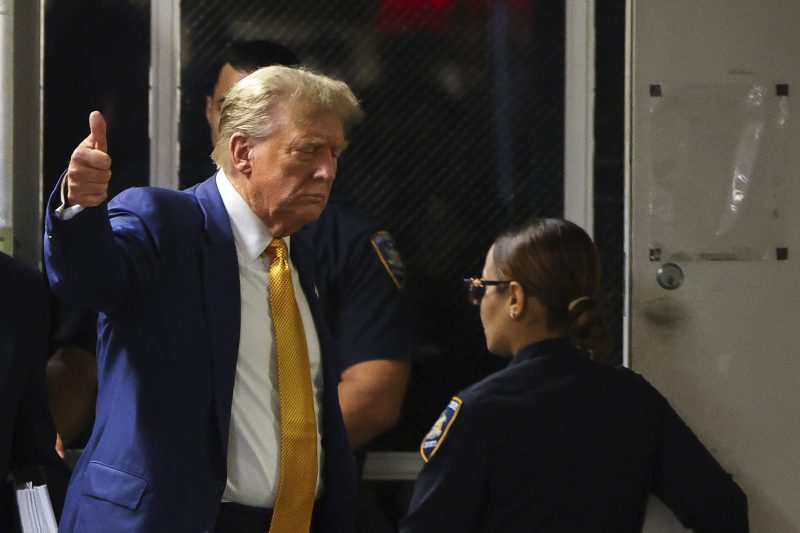In a high-profile legal battle that has captured public attention and had significant implications for the political landscape, the defense team representing former President Donald Trump has put forth a bold new strategy. Rather than framing Trump as a mastermind of hush money schemes, they have instead sought to portray him as a victim of extortion and shakedowns.
This shift in defense strategy has taken many by surprise and has raised intriguing questions about the nature of the case against Trump and the tactics being employed to defend him. The core argument put forward by Trump’s defense team is that the payments made to Stormy Daniels, a former adult film actress who claimed to have had an affair with Trump, were not part of a concerted effort to silence her, but rather a desperate attempt to fend off blackmail and protect Trump’s reputation.
This new narrative challenges the prevailing wisdom that the payments made to Daniels were a violation of campaign finance laws and an attempt to conceal damaging information from the public. By reframing the situation as an act of self-defense in the face of extortion threats, Trump’s defense team is hoping to sow doubt in the minds of jurors and create reasonable doubt about his guilt.
The implications of this defense strategy are significant. If successful, it could not only exonerate Trump in the specific case involving Stormy Daniels but also reshape public perception of his actions and motivations. By presenting Trump as a victim rather than a perpetrator, his defense team is seeking to appeal to the sympathies of the jury and the broader public, casting doubt on the motives of those who have sought to paint him as a corrupt and dishonest figure.
However, this shift in strategy is not without risks. By positioning Trump as a victim of extortion, his defense team opens up the possibility of further scrutiny of his business dealings and personal relationships, potentially uncovering additional instances of unethical behavior or criminal activity. Furthermore, this new narrative could also backfire by portraying Trump as weak or easily manipulated, undermining his desired image as a strong and confident leader.
In conclusion, the decision to frame Trump as a victim of extortion rather than a perpetrator of hush money schemes represents a bold and unconventional legal strategy, with the potential to reshape the narrative surrounding his actions and intentions. Whether this approach will succeed in court remains to be seen, but one thing is clear: the Trump defense team is not shying away from taking risks and challenging the prevailing wisdom in their quest to secure a favorable outcome for their client.



























